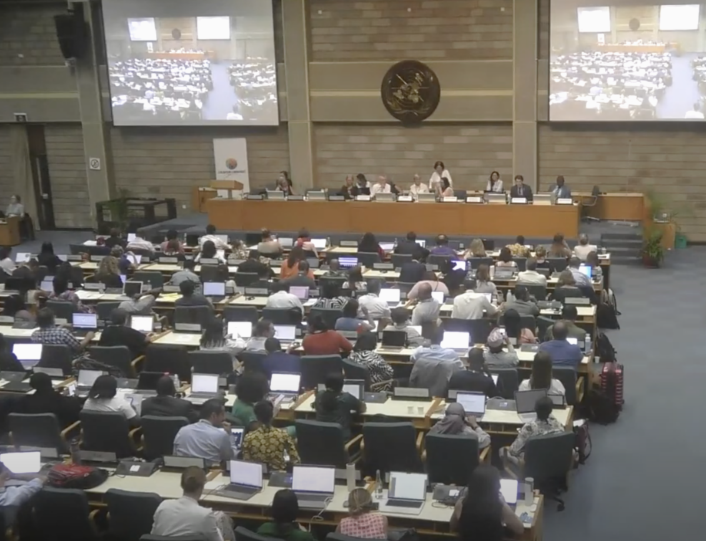Managing Synthetic And Modified Biology Risks And Benefits, More
Nairobi — Leading experts and officials have advanced a wide-ranging suite of recommendations for protecting marine species’ habitat, a global action plan on biodiversity and health, managing modern biotechnology, and implementing and monitoring progress against the 23 targets for 2030 in the UN’s historic Kunming-Montreal Global Biodiversity Framework (‘The Biodiversity Plan’).
The UN Convention on Biological Diversity (CBD)’s Subsidiary Body on Scientific, Technical and Technological Advice ended its six-day, 26th session (SBSTTA-26) here with diverse advice for consideration at CBD’s upcoming 16th Conference of Parties (COP 16, Cali, Colombia, 21 Oct.-1 Nov.).
Marine and coastal biodiversity: The Nairobi meeting set the stage for a potential COP 16 agreement on how the world defines, and consequently protects, ecologically or biologically significant marine areas (EBSAs). At a time when EBSAs are most needed, this would be key for work under the new world agreement on Biodiversity Beyond National Jurisdiction.
A Global Action Plan on Biodiversity and Health: Goal of the proposal: unite the knowledge of international biodiversity and health experts to inform a universal approach to avoiding future pandemics and other benefits.
Biosafety and biotechnology: New voluntary guidance on assessing gene drive engineering was advanced to strengthen scientific rigour and risk assessment transparency. An expert group was created to inform risk assessments of living modified fish, concerns were flagged re. insects engineered for limited population growth, and the need for vigilance in detecting and identifying all living modified organisms was also underlined.
Synthetic biology: Synthetic biology scientists alter the genetic material of various organisms to introduce beneficial traits, such as incorporating spider DNA into silkworms to produce exceptionally strong, lightweight silk. Among many points on which Parties agreed: the strong need for capacity-building, technology transfer, and knowledge-sharing to address inequity in developing countries’ participation.
Monitoring the historic Kunming-Montreal Global Biodiversity Framework: Parties advanced a basis for robust, consistent tracking of national, regional and global progress against The Biodiversity Plan’s 23 historic targets for 2030, adopted at COP 15 in 2022.
Senka Barudanovic of Bosnia and Herzegovina, Chair of the SBSTTA Bureau,
said: “The work we completed here sets the stage for significant COP 16 decisions on EBSAs, risk assessment, and the monitoring framework for The Biodiversity Plan. The proposed Global Plan of Action on Health will also highlight the environmental dimensions of human, animal and plant health.”
“I sincerely congratulate delegates for their hard work in the spirit of compromise that allowed us to provide COP 16 with a key opportunity to strengthen the scientific and technical base to fully implement The Biodiversity Plan and monitor its progress.”
“This meeting showed the willingness of Parties to the CBD to reach consensus on the important scientific foundations of our work to achieve The Biodiversity Plan.” said David Cooper, Acting Executive Secretary of the CBD.
“The discussions have wide-reaching implications on biosafety, biotechnology, biodiversity in our oceans, and new global work on health of people, plants and animals.”
Full SBSTTA meeting documents: here
Archived meeting webcasts: here

